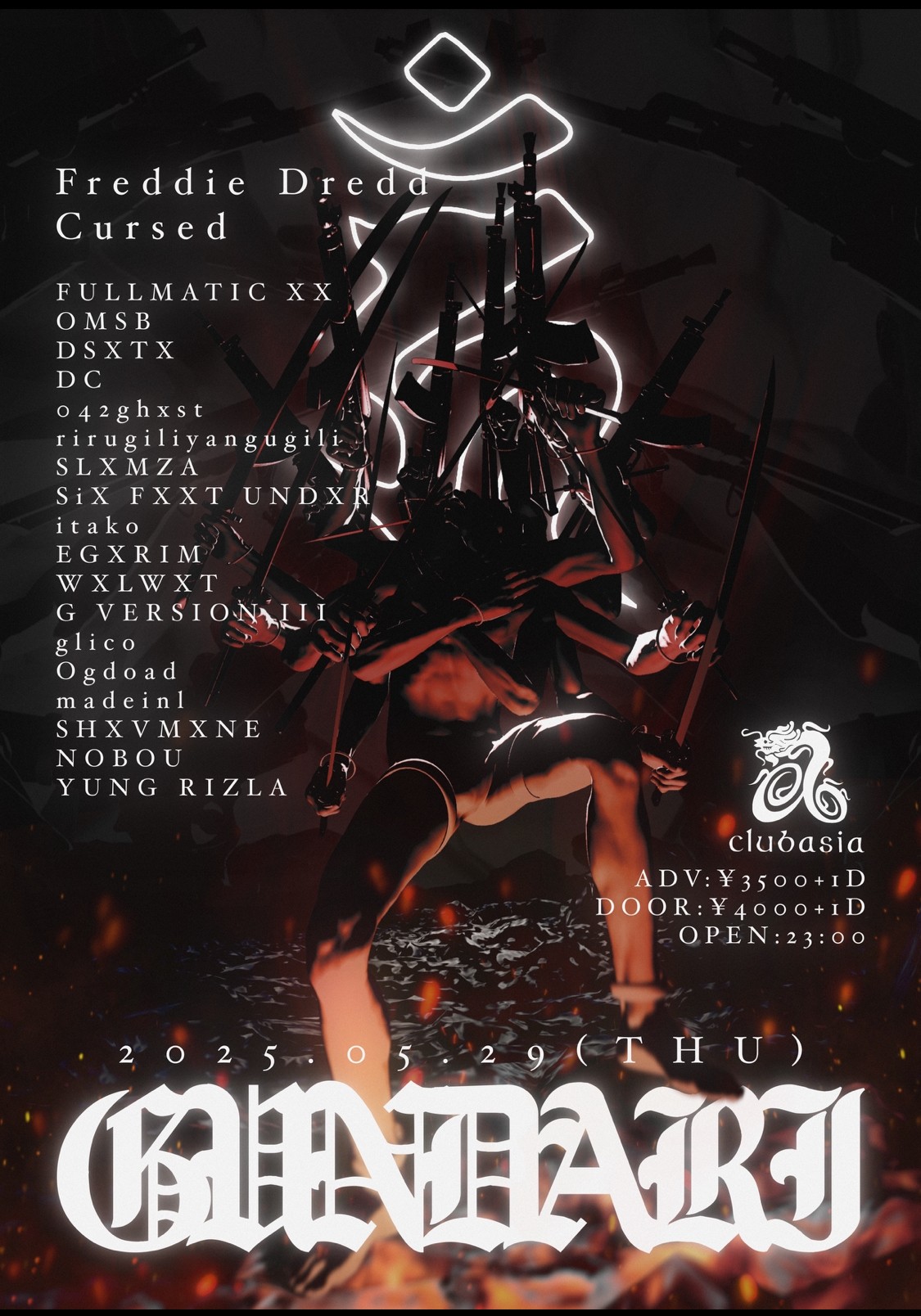




How do you feel about "PHONK"?
How do you feel about "PHONK"?
How do you feel about "PHONK"?
Doomshop solves the vision of PHONK
text:
Avocado
May 27, 2025
May 27, 2025
May 27, 2025
The group "Gundari," which heavily presses the phonk scene in Japan, finally rings the forbidden black bell.
Cursed and Freddie Dredd, from Doomshop Records, will make their first appearance in Japan.
Furthermore, the low-end vinyl necromancers such as OMSB and FULLMATIC XX will shake the bones of the floor.
Real Playa's Ritual — it is the frenzied clubasia──
────────────────────────────
Cursed and Freddie Dredd from Doomshop Records, who will perform at "Gundari," are counted among the representative artists of phonk. While it's often said that phonk started with Raider Klan led by SpaceGhostPurrp, there was a premise that phonk from SGP and Raider Klan was led by rappers. However, today's phonk playas — including the ones performing at "Gundari" — are not necessarily limited to rappers. In phonk, the presence of beatmakers is just as important, if not more, than that of rappers, and the ancient rap samples they summon through sampling are one of the indispensable elements of phonk.
In that sense, the phonk that Doomshop Records has been working on is closer to the current phonk than that of Raider Klan. It has a tendency to use vocal samples for sampling and even modifies their own rap to sound like vocal samples. The influence their experiments have had on the phonk scene around the world, including Japan, must be significant.
Thus, we conducted an interview with Cursed and Freddie Dredd right before their performance at "Gundari." They shared their influences, the current phonk scene, and their thoughts on the future of phonk.
text: Abokado
────────────────────────────
We conducted an exclusive interview with Cursed and Freddie Dredd about the origin of Doomshop's unique musicality.
Where does their one-of-a-kind music come from —
Let's delve into its roots and origins.
Before the event day arrives, we want you to touch on the core of their music and the vision of "phonk."
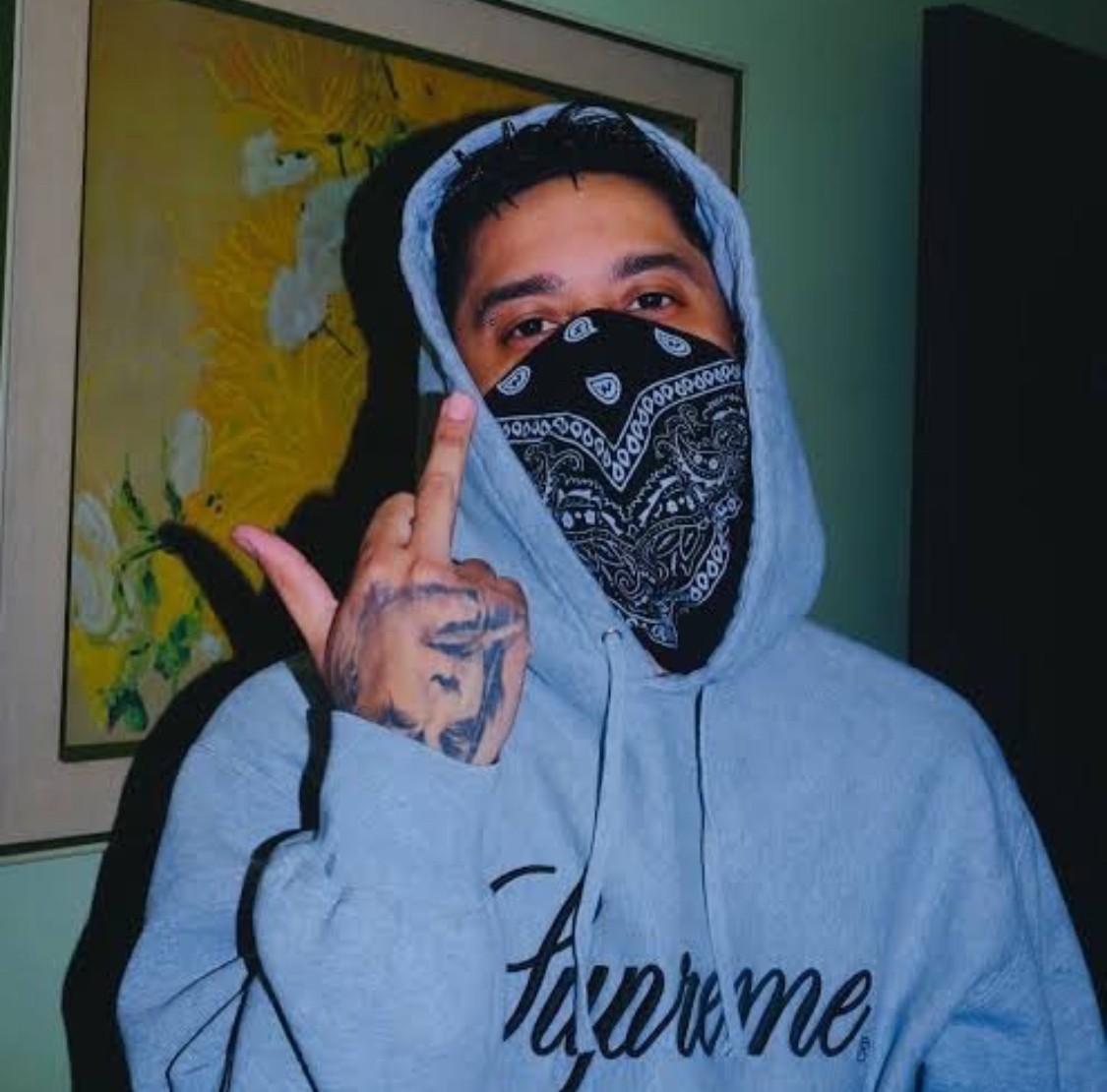
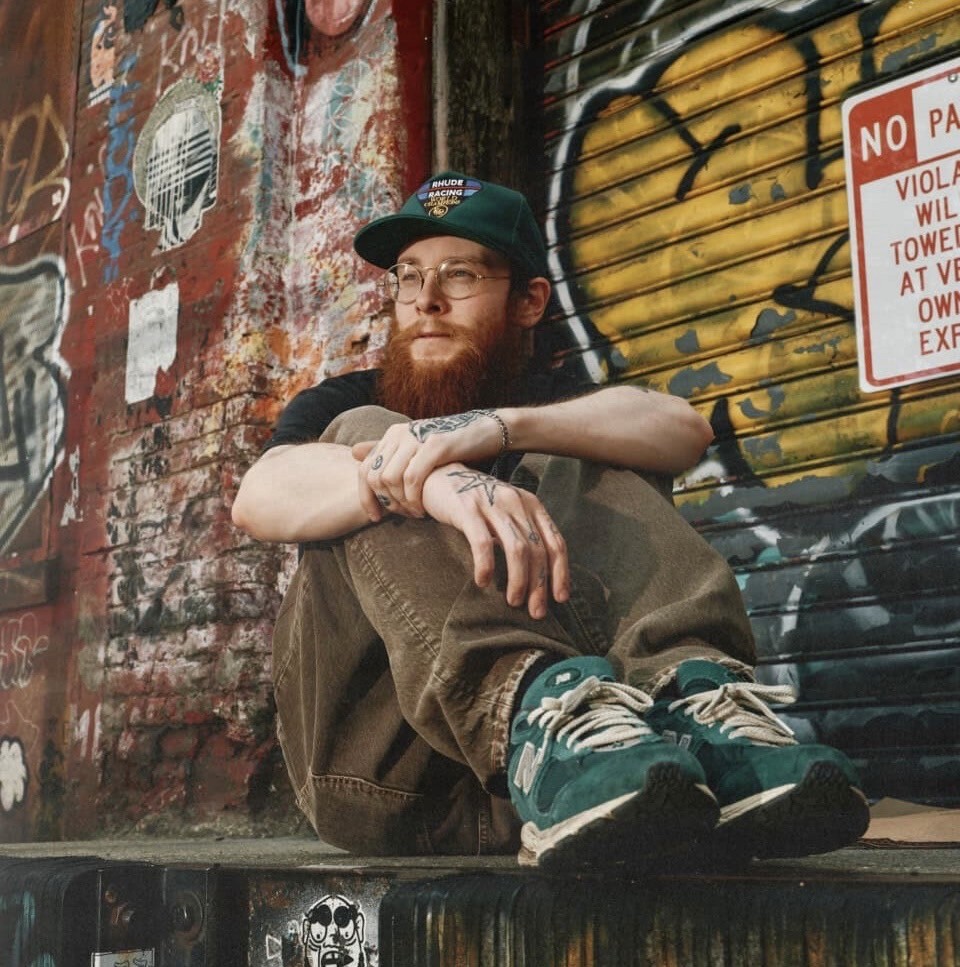
C - Cursed
FD - Freddie Dredd
― How was your day in Japan?
C: It was really good.
FD: It was great; we were doing a lot of things. Since coming here...
Pasta came! Today got even better. You should eat pasta.
C: I'm eating it during the interview (laughs).
― Have you been influenced by Japanese culture?
C: Of course.
FD: 100% influenced. Visual styles, movies, sampling, and all. We sample a lot, and many of our samples come from Japanese culture. In the past, we sampled a lot from anime. There are songs that use samples from “serial experiments lain.” The influence is massive.
C: Movies, anime, culture — all of it has an influence, no doubt.
― What do you prioritize in music production?
FD: The mix. Doomshop has a very unique sound, and it all comes down to the mix. I want it to be rough and have a vintage feel. We are always trying to evolve our sound, but we still want to maintain a certain “essence.” That's what the mix is for, at least for me.
C: The mix, the flow, and the crafting of each track. Our songs basically need a strong bass. Not every song, but most Doomshop songs do. Ease of listening is also important.
FD: It needs a grunge-like quality.
― What attracts you to Memphis rap?
FD: The rawness and the lyrics, I guess. I grew up listening to metal, so that aggressive lyricism resonates well with me. Memphis rap has a vibe that is close to metal. The lyrics are aggressive, the beats are fast and heavy, and there is a lot of sampling. It captures the essence of '90s rap.
C: Memphis music has a huge influence on song structures — including how high hats sound, how the drums come in, and even the lo-fi quality of the vocals. Many people are now trying to imitate this style, but we've been doing it longer.
FD: We recognized its potential long before.
C: We arranged it in our own way and created the Doomshop style. Doomshop has a completely unique sound. It's a derivation of Memphis, but now it's one of the sub-genres.
FD: Doomshop is Doomshop.
― Do you have any role models in your music career?
FD: Of course. When I started music, I listened a lot to East Coast rap. I didn’t listen much to 2Pac, but I really loved J Dilla for his sampling choices — he was really something.
C: For me, 2Pac is a significant influence.
FD: We're from completely different backgrounds, East Coast and... but that's what makes it interesting.
C: It's like a joke story (laughs).
FD: Yeah, we joke about 2Pac sometimes. I also like Tommy Wright III. Especially his mixing style influenced me.
C: Thanks to Tommy Wright III.
FD: Of course, Three 6 Mafia too. I was heavily influenced by them. Also, outside of rap, Meshuggah. I love that band, and I’ve been influenced by their 808s and drum patterns. I liked them since I was a kid, and they’re still my favorite band.
C: Slayer too.
FD: Slayer is a classic. The lyrics are insane. Don't you have any role models?
C: I have plenty.
FD: Name a few.
C: I thank my mom. She’s my biggest role model. And musically, those from ’90s rap — both East and West. 2Pac too.
FD: Your mom is a role model because of the influence of “Dear Momma”? (laughs)
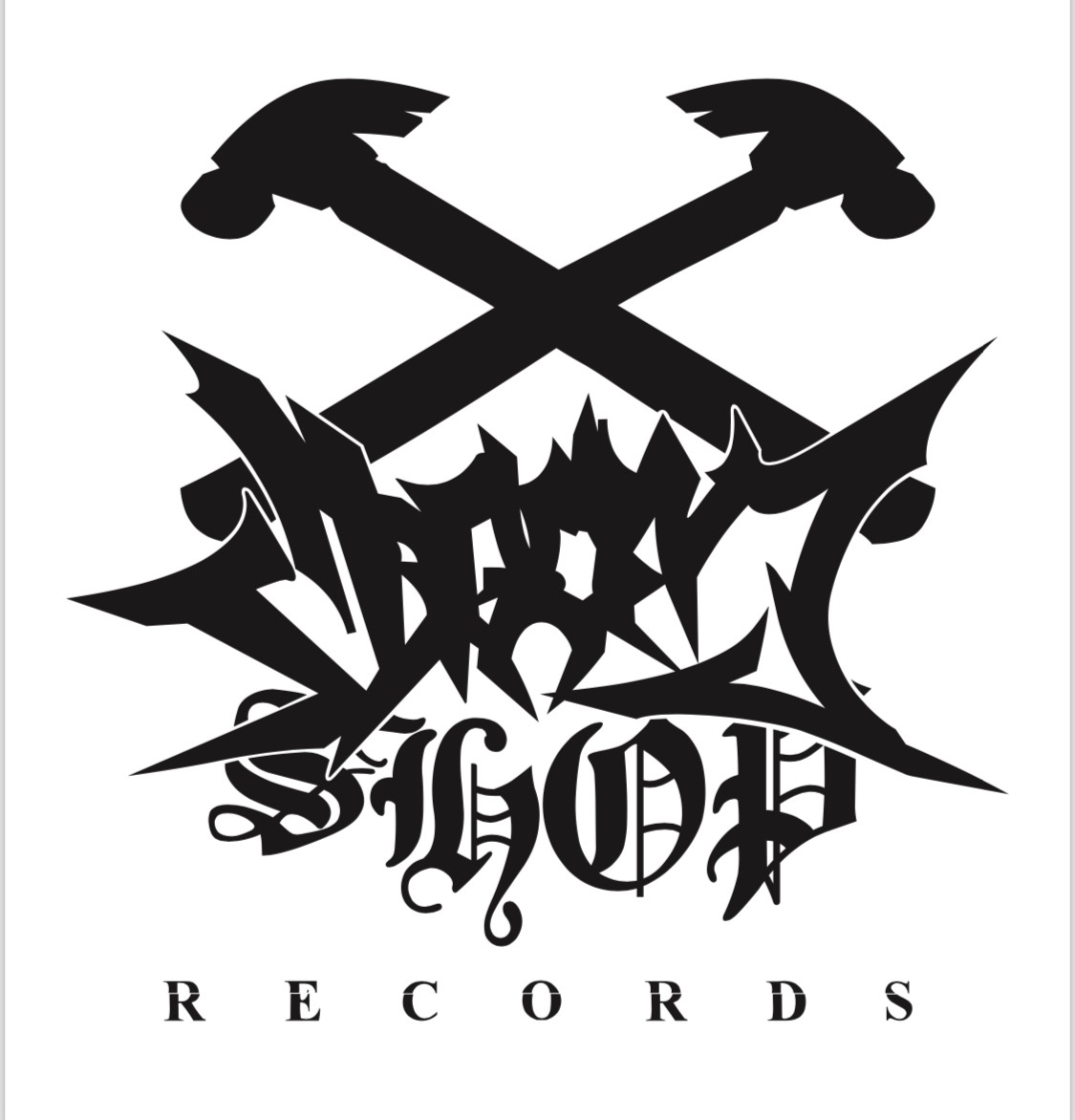
― What kind of influence do you think DOOMSHOP has had on the phonk scene?
FD: I think we have influenced it in every way. The music currently called phonk, I believe it all traces back to Doomshop. Even the current “drift phonk.” We didn’t start it, but we were doing it first. When I joined Doomshop, Cursed was already doing it.
C: MC Holocaust too.
FD: Thanks to him. From the beginning, I thought, “This is definitely going to blow up,” and it’s the foundation of the current scene. Songs released in 2014 or so are still being listened to today. The influence is truly significant. Anyone who denies it is foolish.
C: A lot of people seem to overlook the existence of the Doomshop group. They imitate and talk about it as if it's their own style, but it originated from Doomshop. Even mainstream rappers are imitating it now.
FD: Like “Babushka Boi.”
C: That’s a complete Doomshop beat.
FD: That cowbell sound and drum pattern — that's exactly it.
C: We didn’t start it, but we resurrected it. Thanks to Raider Klan, Chris Travis, and Bones (not sure if I heard him correctly).
FD: $uicideboy$ too.
C: They also support the scene. I send them real love. When I hear Doomshop’s sound, I go, “Oh, this is it.” That’s amazing.
FD: We made this! Check it out properly and you'll see.
― Did you know that phonk is known in Japan?
FD: Actually, I knew for quite a while. When Cursed made my first cassette tape, he packed it with all of my old singles like a “best of” collection, and a Japanese collector got it and added it to their collection. I realized that it was already being listened to in Japan by 2014 or 2015.
C: Back then, we weren't super famous in Japan, but there were very enthusiastic fans. From places like Tokyo, Osaka, Hiroshima, and many others. It's amazing that the sound of Doomshop has reached Japan. I love Japan.
― How do you think phonk will evolve in the future?
FD: I think it might die. It’s out there a lot on TikTok now, reaching a saturation point. All the same “drift phonk.” It’s easy to make, and honestly, it’s garbage. I don’t want to call our music phonk. Doomshop has typical phonk, but I think the current trend will crash. It's all the same sound, and it’s boring.
C: I think sub-genres of phonk will emerge.
FD: It’s really terrible right now.
C: If it stays this way, it won't last long. Change is needed. That cowbell sound and the same patterns — that's part of rap history too. '90s rap doesn't appeal to today’s kids either. There are fewer kids listening to 2Pac and Biggie. I think phonk will follow that path. If something new and interesting doesn’t come out.
FD: Today’s phonk is being used as a money-making tool. Just picking up loops from Splice and playing the same cowbell. It’s going to fade out. But if Doomshop style continues, I’ll be happy. I think it will still sound good after many years.
― What are your future plans?
FD: We will keep pushing forward. In 2025, I’ll be on tour all the time, and for me, as a Canadian, America is a foreign land, so the time away from home will be the longest. But I'll continue touring and plan to go to new places. I’ll keep releasing music too.
C: Lots of live shows, a lot of tours. We’re making new songs and moving a lot, so stay tuned. For Doomshop as a whole too. MC Holocaust and everyone will be back.
────────────────────────────
GUNDARI SIGNATURE TAPE
A mix tape composed of Real Playa's will be sold exclusively at clubasia on the day!
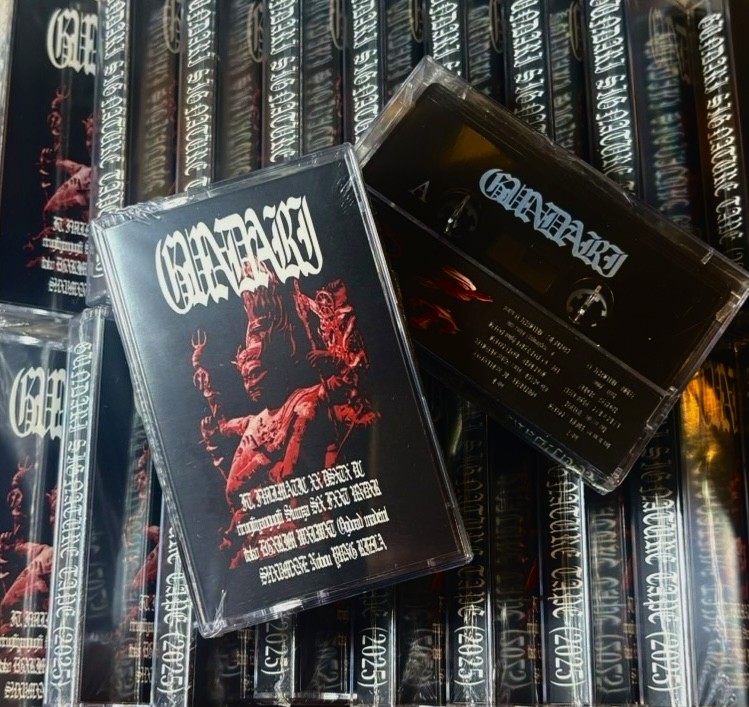
- Below is an explanation by Abokado
Looking back, I think Memphis might have been the most prominent place in hip-hop over the past 15 years. Rappers influenced by Memphis rap like A$AP Rocky and Drake have become superstars, and songs from Three 6 Mafia have turned into standard sampling material; new Memphis artists like Key Glock and GloRilla are thriving... and so on, many topics can be raised regarding Memphis rap.
The development of the sub-genre “phonk” is one of them. This style originated when the Florida wizard SpaceGhostPurrp inherited the dark and lo-fi texture of Three 6 Mafia from the '90s and presented it in a new form, which has since been refined by various talents such as the members of Doomshop Records and DJ Smokey. Its enthusiasm has crossed over to Eastern Europe, reaching countries like Russia and Ukraine, running rampant on TikTok. It has produced hit songs like Kaito Shoma's “Scary Garry.” However, the elements that compose phonk aren't limited to Memphis rap. Just like Kaito Shoma's artist name suggests, it’s often the case that Japanese is used, as seen in DJ Paul of Three 6 Mafia attempting his own take on phonk with “KENKA.” It is indeed a strange situation that Japan, far removed from Memphis, is experiencing a strong connection, actively producing phonk in Eastern Europe.
This artwork, inherent to a culture that has deep ties to Japan, feels like phonk has firmly taken root and is growing in Japan. Although phonk and its roots, the dawn period of Memphis rap, often saw releases on cassette tapes, this work is also structured assuming a release on cassette, divided into Side A and Side B. Side A is filled with instrumentals by beatmakers, while Side B starts with a hard style in a band format, followed by rappers who make their appearances one after another. This structure, switching modes around this core, is precisely designed for the listening experience of cassette tapes. On the sound side, while maintaining the manners of phonk such as intense bass and lo-fi texture, different charms can be enjoyed in each track, from the hard line tackled by a band, a funky style adjacent to West Coast gangster rap, to somewhat Japanese melodic sensibilities... The variety is indeed rich while maintaining a central spine. One could say that it reflects the characteristics of phonk, which has connections with various places, including Memphis, Japan, and Eastern Europe, making it appropriate for a title bearing the name of the eight-armed military deity, Gundari Myo-o.
I initially looked back at topics related to Memphis rap, but few have inherited the cassette tape culture characteristic of the dawn period of Memphis rap other than phonk. I hope you enjoy this unique work born in 2025 Japan, far removed in place and time from the 1990s Memphis, which upholds tradition while also being modern.
You can stream it here⤵︎
https://linkco.re/E3B9E4Gu
────────────────────────────
Check out the event information below!!
The group "Gundari," which heavily presses the phonk scene in Japan, finally rings the forbidden black bell.
Cursed and Freddie Dredd, from Doomshop Records, will make their first appearance in Japan.
Furthermore, the low-end vinyl necromancers such as OMSB and FULLMATIC XX will shake the bones of the floor.
Real Playa's Ritual — it is the frenzied clubasia──
────────────────────────────
Cursed and Freddie Dredd from Doomshop Records, who will perform at "Gundari," are counted among the representative artists of phonk. While it's often said that phonk started with Raider Klan led by SpaceGhostPurrp, there was a premise that phonk from SGP and Raider Klan was led by rappers. However, today's phonk playas — including the ones performing at "Gundari" — are not necessarily limited to rappers. In phonk, the presence of beatmakers is just as important, if not more, than that of rappers, and the ancient rap samples they summon through sampling are one of the indispensable elements of phonk.
In that sense, the phonk that Doomshop Records has been working on is closer to the current phonk than that of Raider Klan. It has a tendency to use vocal samples for sampling and even modifies their own rap to sound like vocal samples. The influence their experiments have had on the phonk scene around the world, including Japan, must be significant.
Thus, we conducted an interview with Cursed and Freddie Dredd right before their performance at "Gundari." They shared their influences, the current phonk scene, and their thoughts on the future of phonk.
text: Abokado
────────────────────────────
We conducted an exclusive interview with Cursed and Freddie Dredd about the origin of Doomshop's unique musicality.
Where does their one-of-a-kind music come from —
Let's delve into its roots and origins.
Before the event day arrives, we want you to touch on the core of their music and the vision of "phonk."


C - Cursed
FD - Freddie Dredd
― How was your day in Japan?
C: It was really good.
FD: It was great; we were doing a lot of things. Since coming here...
Pasta came! Today got even better. You should eat pasta.
C: I'm eating it during the interview (laughs).
― Have you been influenced by Japanese culture?
C: Of course.
FD: 100% influenced. Visual styles, movies, sampling, and all. We sample a lot, and many of our samples come from Japanese culture. In the past, we sampled a lot from anime. There are songs that use samples from “serial experiments lain.” The influence is massive.
C: Movies, anime, culture — all of it has an influence, no doubt.
― What do you prioritize in music production?
FD: The mix. Doomshop has a very unique sound, and it all comes down to the mix. I want it to be rough and have a vintage feel. We are always trying to evolve our sound, but we still want to maintain a certain “essence.” That's what the mix is for, at least for me.
C: The mix, the flow, and the crafting of each track. Our songs basically need a strong bass. Not every song, but most Doomshop songs do. Ease of listening is also important.
FD: It needs a grunge-like quality.
― What attracts you to Memphis rap?
FD: The rawness and the lyrics, I guess. I grew up listening to metal, so that aggressive lyricism resonates well with me. Memphis rap has a vibe that is close to metal. The lyrics are aggressive, the beats are fast and heavy, and there is a lot of sampling. It captures the essence of '90s rap.
C: Memphis music has a huge influence on song structures — including how high hats sound, how the drums come in, and even the lo-fi quality of the vocals. Many people are now trying to imitate this style, but we've been doing it longer.
FD: We recognized its potential long before.
C: We arranged it in our own way and created the Doomshop style. Doomshop has a completely unique sound. It's a derivation of Memphis, but now it's one of the sub-genres.
FD: Doomshop is Doomshop.
― Do you have any role models in your music career?
FD: Of course. When I started music, I listened a lot to East Coast rap. I didn’t listen much to 2Pac, but I really loved J Dilla for his sampling choices — he was really something.
C: For me, 2Pac is a significant influence.
FD: We're from completely different backgrounds, East Coast and... but that's what makes it interesting.
C: It's like a joke story (laughs).
FD: Yeah, we joke about 2Pac sometimes. I also like Tommy Wright III. Especially his mixing style influenced me.
C: Thanks to Tommy Wright III.
FD: Of course, Three 6 Mafia too. I was heavily influenced by them. Also, outside of rap, Meshuggah. I love that band, and I’ve been influenced by their 808s and drum patterns. I liked them since I was a kid, and they’re still my favorite band.
C: Slayer too.
FD: Slayer is a classic. The lyrics are insane. Don't you have any role models?
C: I have plenty.
FD: Name a few.
C: I thank my mom. She’s my biggest role model. And musically, those from ’90s rap — both East and West. 2Pac too.
FD: Your mom is a role model because of the influence of “Dear Momma”? (laughs)

― What kind of influence do you think DOOMSHOP has had on the phonk scene?
FD: I think we have influenced it in every way. The music currently called phonk, I believe it all traces back to Doomshop. Even the current “drift phonk.” We didn’t start it, but we were doing it first. When I joined Doomshop, Cursed was already doing it.
C: MC Holocaust too.
FD: Thanks to him. From the beginning, I thought, “This is definitely going to blow up,” and it’s the foundation of the current scene. Songs released in 2014 or so are still being listened to today. The influence is truly significant. Anyone who denies it is foolish.
C: A lot of people seem to overlook the existence of the Doomshop group. They imitate and talk about it as if it's their own style, but it originated from Doomshop. Even mainstream rappers are imitating it now.
FD: Like “Babushka Boi.”
C: That’s a complete Doomshop beat.
FD: That cowbell sound and drum pattern — that's exactly it.
C: We didn’t start it, but we resurrected it. Thanks to Raider Klan, Chris Travis, and Bones (not sure if I heard him correctly).
FD: $uicideboy$ too.
C: They also support the scene. I send them real love. When I hear Doomshop’s sound, I go, “Oh, this is it.” That’s amazing.
FD: We made this! Check it out properly and you'll see.
― Did you know that phonk is known in Japan?
FD: Actually, I knew for quite a while. When Cursed made my first cassette tape, he packed it with all of my old singles like a “best of” collection, and a Japanese collector got it and added it to their collection. I realized that it was already being listened to in Japan by 2014 or 2015.
C: Back then, we weren't super famous in Japan, but there were very enthusiastic fans. From places like Tokyo, Osaka, Hiroshima, and many others. It's amazing that the sound of Doomshop has reached Japan. I love Japan.
― How do you think phonk will evolve in the future?
FD: I think it might die. It’s out there a lot on TikTok now, reaching a saturation point. All the same “drift phonk.” It’s easy to make, and honestly, it’s garbage. I don’t want to call our music phonk. Doomshop has typical phonk, but I think the current trend will crash. It's all the same sound, and it’s boring.
C: I think sub-genres of phonk will emerge.
FD: It’s really terrible right now.
C: If it stays this way, it won't last long. Change is needed. That cowbell sound and the same patterns — that's part of rap history too. '90s rap doesn't appeal to today’s kids either. There are fewer kids listening to 2Pac and Biggie. I think phonk will follow that path. If something new and interesting doesn’t come out.
FD: Today’s phonk is being used as a money-making tool. Just picking up loops from Splice and playing the same cowbell. It’s going to fade out. But if Doomshop style continues, I’ll be happy. I think it will still sound good after many years.
― What are your future plans?
FD: We will keep pushing forward. In 2025, I’ll be on tour all the time, and for me, as a Canadian, America is a foreign land, so the time away from home will be the longest. But I'll continue touring and plan to go to new places. I’ll keep releasing music too.
C: Lots of live shows, a lot of tours. We’re making new songs and moving a lot, so stay tuned. For Doomshop as a whole too. MC Holocaust and everyone will be back.
────────────────────────────
GUNDARI SIGNATURE TAPE
A mix tape composed of Real Playa's will be sold exclusively at clubasia on the day!

- Below is an explanation by Abokado
Looking back, I think Memphis might have been the most prominent place in hip-hop over the past 15 years. Rappers influenced by Memphis rap like A$AP Rocky and Drake have become superstars, and songs from Three 6 Mafia have turned into standard sampling material; new Memphis artists like Key Glock and GloRilla are thriving... and so on, many topics can be raised regarding Memphis rap.
The development of the sub-genre “phonk” is one of them. This style originated when the Florida wizard SpaceGhostPurrp inherited the dark and lo-fi texture of Three 6 Mafia from the '90s and presented it in a new form, which has since been refined by various talents such as the members of Doomshop Records and DJ Smokey. Its enthusiasm has crossed over to Eastern Europe, reaching countries like Russia and Ukraine, running rampant on TikTok. It has produced hit songs like Kaito Shoma's “Scary Garry.” However, the elements that compose phonk aren't limited to Memphis rap. Just like Kaito Shoma's artist name suggests, it’s often the case that Japanese is used, as seen in DJ Paul of Three 6 Mafia attempting his own take on phonk with “KENKA.” It is indeed a strange situation that Japan, far removed from Memphis, is experiencing a strong connection, actively producing phonk in Eastern Europe.
This artwork, inherent to a culture that has deep ties to Japan, feels like phonk has firmly taken root and is growing in Japan. Although phonk and its roots, the dawn period of Memphis rap, often saw releases on cassette tapes, this work is also structured assuming a release on cassette, divided into Side A and Side B. Side A is filled with instrumentals by beatmakers, while Side B starts with a hard style in a band format, followed by rappers who make their appearances one after another. This structure, switching modes around this core, is precisely designed for the listening experience of cassette tapes. On the sound side, while maintaining the manners of phonk such as intense bass and lo-fi texture, different charms can be enjoyed in each track, from the hard line tackled by a band, a funky style adjacent to West Coast gangster rap, to somewhat Japanese melodic sensibilities... The variety is indeed rich while maintaining a central spine. One could say that it reflects the characteristics of phonk, which has connections with various places, including Memphis, Japan, and Eastern Europe, making it appropriate for a title bearing the name of the eight-armed military deity, Gundari Myo-o.
I initially looked back at topics related to Memphis rap, but few have inherited the cassette tape culture characteristic of the dawn period of Memphis rap other than phonk. I hope you enjoy this unique work born in 2025 Japan, far removed in place and time from the 1990s Memphis, which upholds tradition while also being modern.
You can stream it here⤵︎
https://linkco.re/E3B9E4Gu
────────────────────────────
Check out the event information below!!
Related Events
Related Events
Related Events




Contact
Venue materials/inquiries regarding stage production, sound, and lighting
Inquiry about sound and lighting|stage@clubasia.jp
Inquiry about visual media|visual@clubasia.jp

Contact
Venue materials/inquiries regarding stage production, sound, and lighting
Inquiry about sound and lighting|stage@clubasia.jp
Inquiry about visual media|visual@clubasia.jp

Contact
Venue materials/inquiries regarding stage production, sound, and lighting
Inquiry about sound and lighting|stage@clubasia.jp
Inquiry about visual media|visual@clubasia.jp



